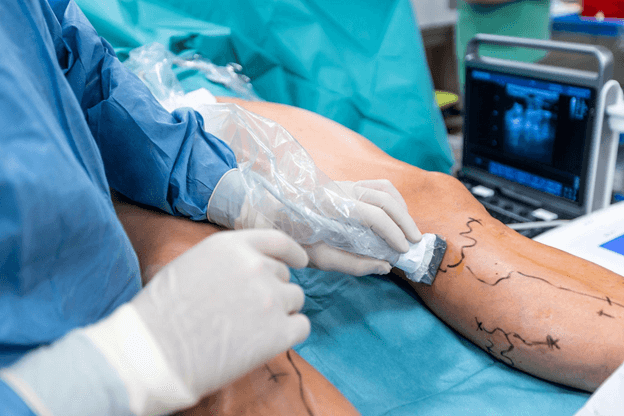Varicose veins, those twisted, swollen blood vessels that often seem on the legs, are not handiest a beauty difficulty however also can result in pain, pain, and headaches if left untreated. In recent years, scientific improvements have revolutionized the treatment panorama for varicose veins, with laser therapy rising as the favored choice of physicians over conventional surgical interventions. this newsletter delves into the motives behind this shift and explores the advantages of laser treatment for varicose veins.
The Evolution of Varicose Vein Treatment: From Scalpels to Lasers
Historically, surgical procedures such as vein stripping and ligation were the primary approaches used to manage varicose veins. However, these methods often involved significant discomfort, extended recovery periods, and the potential for scarring. With the advent of laser technology, a more precise and patient-friendly alternative has emerged.
Precision and Minimally Invasive Approach
Laser treatment, also known as endovenous laser therapy (EVLT), employs highly focused light energy to close off the affected veins. During the procedure, a thin laser fiber is inserted into the vein, delivering controlled energy to seal the vein walls. This targeted approach reduces the need for large incisions, leading to minimal scarring and significantly less post-operative pain compared to traditional surgery.
Benefits of Laser Treatment
Minimized Discomfort and Downtime: Unlike surgical procedures that require general anesthesia and extended hospital stays, laser treatment is typically performed under local anesthesia on an outpatient basis. Patients can often resume their regular activities within a short time frame.
Reduced Risk of Complications: Laser therapy minimizes the risk of infection, bleeding, and other complications associated with surgical procedures. The precise nature of the treatment reduces damage to surrounding tissues.
Cosmetically Favorable Results: The small incisions used in laser treatment are less noticeable and lead to minimal scarring, enhancing the overall cosmetic outcome.
Patient Satisfaction: The combination of minimal discomfort, quick recovery, and effective results contributes to high patient satisfaction rates with laser treatment.
Targeted Approach: Laser treatment precisely targets the affected veins, leaving healthy veins untouched. This preserves healthy blood flow and reduces the likelihood of recurrence.
Understanding Varicose Veins and Laser Treatment
Varicose veins occur when the valves within veins become weakened or damaged, causing blood to pool and the veins to enlarge and protrude. While lifestyle changes and compression stockings can help manage mild cases, more advanced situations often necessitate medical intervention.

How varicose veins Laser Treatment Works?
Laser treatment, also known as endovenous laser therapy (EVLT), is a minimally invasive procedure that offers several advantages over traditional surgical methods. During the treatment, a specialized laser fiber is inserted into the affected vein through a small incision. The fiber delivers targeted laser energy to the interior of the vein, causing it to heat up and eventually collapse. As the vein closes off, blood flow is rerouted to healthier veins, alleviating symptoms and improving circulation.
Benefits of Laser Treatment
Minimally Invasive: One of the primary benefits of laser treatment is its minimally invasive nature. Unlike traditional vein-stripping surgeries that require larger incisions and longer recovery periods, laser treatment involves only a small incision.
Reduced Discomfort: Laser therapy typically causes less discomfort than traditional surgery. The procedure is performed under local anesthesia, and patients usually experience minimal pain during and after the treatment.
Quick Recovery: Patients can often resume normal activities shortly after the procedure. This quick recovery time is attributed to the precision of the laser treatment, which minimizes trauma to surrounding tissues.
Improved Appearance: Laser treatment not only relieves symptoms but can also improve the appearance of varicose veins. The procedure leads to less scarring compared to surgical interventions.
High Success Rate: Numerous studies have demonstrated the effectiveness of laser treatment in closing off varicose veins and reducing symptoms. This high success rate has contributed to its growing popularity among both patients and physicians.
What to Expect During and After the Procedure?
Consultation: A thorough evaluation is conducted to determine the suitability of laser treatment. Medical history, physical examination, and possibly imaging tests are used to assess the veins’ condition.
Procedure: The actual procedure involves the insertion of a thin laser fiber into the targeted vein. Patients are usually awake during the procedure, which is performed under local anesthesia.
Recovery: Following the procedure, patients may experience some mild discomfort, bruising, or swelling, but this usually subsides quickly. Compression stockings might be recommended to aid healing and improve blood circulation.
Results: Over the following weeks, the treated vein will gradually close off and be reabsorbed by the body. Patients typically notice a significant improvement in their symptoms and the appearance of their legs.
Is Laser Treatment Right for You?
in case you’re thinking about laser treatment for varicose veins, it is vital to talk over with a qualified vascular professional. they are able to examine your situation, speak remedy options, and determine if laser therapy is the maximum suitable technique based totally to your medical records and the severity of your condition.
Physicians’ Perspective: Why Laser Treatment is Preferred
Scientific Backing: Numerous studies have demonstrated the efficacy and safety of laser treatment for varicose veins. These findings provide physicians with the confidence to recommend laser therapy as a reliable solution.
Advancements in Technology: Laser technology has evolved, allowing for better precision, control, and patient comfort. Physicians appreciate the ability to tailor the treatment to each patient’s unique needs.
Patient-Centric Care: Laser treatment aligns with the modern healthcare approach of providing minimally invasive, patient-centric treatments. This approach prioritizes patients’ well-being and satisfaction.
Clinical Experience: With years of successful outcomes and patient testimonials, physicians have witnessed the positive impact of laser treatment on their patients’ lives.
The Future of Varicose Vein Treatment
As clinical generation continues to enhance, laser remedy for varicose veins is possibly to become even greater refined and patient-pleasant. Physicians will continue to incorporate the cutting-edge improvements to make certain premiere outcomes for their sufferers.
Varicose veins, those unsightly and every so often painful twisted veins often discovered on the legs, have an effect on a large portion of the populace. traditional surgical tactics had been used to address this issue, however in latest years, medical examiners have an increasing number of endorsed for laser treatment as a advanced opportunity. In this article, we delve into the motives in the back of medical doctors’ developing desire for laser remedy over surgical procedure in managing varicose veins.
1. Minimally Invasive Nature
Laser treatment for varicose veins is a minimally invasive procedure, involving the use of focused light energy to target and close off the affected veins. Unlike surgery, which often requires incisions and sutures, laser treatment involves only small incisions or needle punctures. This reduced invasiveness leads to shorter recovery times, decreased risk of complications, and minimal scarring.
2. Local Anesthesia vs. General Anesthesia
Surgical procedures for varicose veins often require popular anesthesia, which includes its own set of dangers and ability complications. Laser treatment, on the other hand, can frequently be finished under local anesthesia or maybe with minimal soreness. This extensively lowers the dangers associated with anesthesia management, making it a more secure choice for lots sufferers, specially those with underlying fitness issues.
3. Precision and Targeted Therapy
Laser treatment provides a level of precision that surgical methods struggle to match. The focused nature of the laser energy allows physicians to precisely target the affected veins while minimizing damage to surrounding tissues. This precision results in reduced post-procedure bruising, swelling, and discomfort compared to surgery, which may involve more extensive tissue disruption.
4. Reduced Downtime and Faster Recovery
one of the most attractive factors of laser treatment is the minimal downtime it entails. patients present process surgical operation for varicose veins often need to take prolonged day off paintings and different sports to get better. Laser remedy, but, enables patients to renew their normal workouts tons faster, frequently within a day or two after the method. This comfort is a key aspect within the growing popularity of laser remedy.
5. Lower Risk of Complications
Surgical procedures inherently carry certain risks, including infection, bleeding, and complications related to wound healing. Laser treatment significantly reduces these risks due to its minimally invasive nature. The smaller incisions and lower likelihood of tissue trauma associated with lasers result in a decreased chance of infections and other complications.
6. Long-Term Success Rates
Doctors are increasingly recommending laser treatment due to its impressive long-term success rates. Laser therapy effectively closes off problematic veins, rerouting blood flow to healthier vessels. This leads to a reduction in symptoms and a significant improvement in the appearance of varicose veins. Research suggests that the durability of laser treatment outcomes is comparable, if not superior, to surgical approaches.


